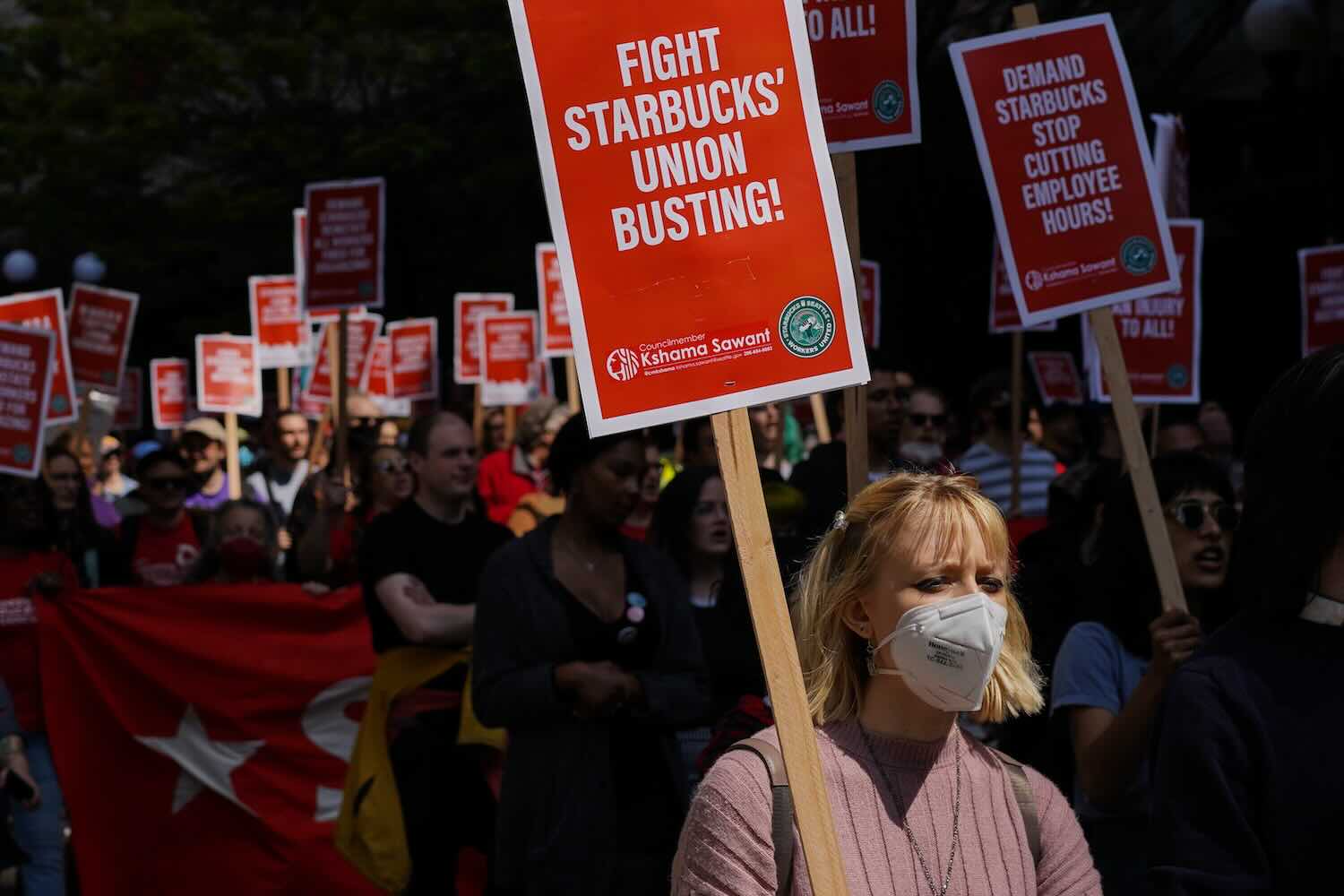ImpactAlpha, March 15 — Mitch Kapor and Freada Kapor Klein have spent more than a decade betting on diverse founders with lived experience who are working to bridge gaps in equity and opportunity.
With more than $100 million in investments made via Kapor Capital, the couple has been a key builder of the thriving impact tech ecosystem led by founders of color that includes fast-growing companies such as Blocpower, Bitwise and Aclima.
After turning over the active management of Kapor Capital to the next generation of leadership, they set out to write a book that chronicles their journey and that of several founders laying the groundwork for a more inclusive economy.
“When we started out in 2011, we had a thesis about why it was possible and how to do it,” the Kapors write in Closing the Equity Gap: Creating Wealth and Fostering Justice in Startup Investing, out this week. “Now we have lots of evidence, both in terms of financial returns and the social impacts.”
Mitch Kapor, who founded Lotus Software and developed the Lotus 1-2-3 spreadsheet before selling to IBM for $3.5 billion in 1995, is not afraid to take on tech moguls or others with different perspectives on social equity. When Kapor tweeted that while “genius is evenly distributed by zip code, access is not,” Elon Musk fired back. “This is false,” Musk said. The exchange has been viewed 2.8 million times.
“None of the critique, and certainly none of the haters, actually challenged the central idea that there’s this underestimated and overlooked talent that we can do something about,” Kapor says. “Sometimes I make this point a bit emphatically and slightly dramatically.”
Kapor Klein, an educator and activist, was recently elected to the national board of the NAACP, and is “going to be working with them on investment-related activities.” The couple continues to provide support to Kapor Center, and particularly for the 30 Black and Latino first-time fund managers the center supports.
“We really want to bust the myth that you sacrifice returns for having gap-closing companies.” Kapor Klein tells ImpactAlpha. “Everything that we’ve invested in since 2011 at Kapor Capital has been a tech company where the core business closes gaps of access or opportunity or outcome for communities of color and/or low income communities.”
High-growth jobs
Based out of Oakland, the couple launched Kapor Capital over a decade ago, investing out of their own pockets.
“When we first planted our flag and said, ‘Look, we really want to invest in founders who are committed to building a gap-closing company,’ we discovered there were a lot of them. They had been hiding this because all the advice they’d gotten was, take impact out of your deck. Take diversity of your deck. You’ll never get funded,” Kapor said in an interview this week.
Impact and diversity are key to their investment thesis. On their first visit to Bitwise Industries in Fresno, Calif., the couple were struck by the excitement at the tech-training and apprenticeship program built by founders Jake Soberal and Irma Olguin Jr, and the ancillary businesses and cafe in the community space they created.
“The energy was palpable,” Kapor said. “When we walked in, we could see all these folks, mostly Black and Brown folks who had been excluded from and totally outside the tech ecosystem, and now they were becoming a part of it.”
Soberal and Olguin Jr., both Fresno natives, had returned to the city to help create opportunities for residents who might otherwise be destined for back-breaking work in the area’s agricultural fields. They were in the early stages of building an inclusive tech company that upskills low-income and minority residents for high-growth, well-paid tech jobs.
Bitwise now operates in Bakersfield, Merced and Oakland, Calif., and cities as far flung as Cheyenne, Wyo., and Buffalo, New York. The company last month raised a fresh $80 million in a new round led by Kapor Center to power its expansion to Chicago’s South Side.
“Other investors were saying, ‘maybe you’ve succeeded in Fresno because you’re from Fresno, but that’s not going to work when you go to Bakersfield,” Kapor says. “We said, ‘No, the model isn’t overly complicated and the pieces all fit together.’”
Since 2013, Bitwise has paid $20,000 a year each to train 15,000 students, who have gone on to earn 60,000 annually on average when they graduate. More than half of graduates are women and Latinos and identify as LGBTQ and close to 10% have been incarcerated. Black graduates make up nearly 20%.
“We have continued to double down round after round and the skeptics have been proved wrong round after round,” Kapor said.
Decarbonizing buildings
The thesis that investing in overlooked and underrepresented founders closing gaps of access for low-income communities and/or communities of color can yield strong financial returns set Kapor Capital apart from other venture capital firms. Kapor Capital boasts a net IRR of 29% between 2011 and 2017.
“Being who we are and doing what we do has actually been a competitive advantage in winning deals and in helping get these mission-driven founders going. That was not something we expected,” Kapor says.
Donnel Baird, the founder of Brooklyn-based BlocPower, credits the Kapors with helping unlock capital for his model for electrifying and decarbonizing buildings in low-income neighborhoods while creating inclusive green jobs. BlocPower has projects in San Jose, Atlanta, Denver and Ithaca, N.Y., among other cities. BlocPower raised $24 million in additional equity this month, along with $130 million in debt funding from Goldman Sachs.
Baird was just the kind of founder the Kapors were looking for (see, “Donnel Baird: Agent of Impact”). He grew up in a small apartment in Brooklyn. During the winter seasons, his family, originally from Guyana, “heated their stuffy space by turning on the gas oven and opening its door,” the Kapors write.
“BlocPower has had some very tough obstacles, particularly with dealing with a lot of naysayers,” Kapor Klein says. “Part of it was racism and the other was not understanding the upside of gap-closing impact businesses.”
BlocPower pays up to $20 hourly each to train thousands workers to install heat pumps for sustainable heating and cooling. In New York, BlocPower has secured over $100 million in a contract with NYC Mayor Eric Adams to train up to 3,000 workers annually, starting in New York communities with a high risk of gun violence.
Walking the talk
The Kapors emphasize maintaining the integrity of the gap-closing thesis over the years has been integral to its success. The thesis has been tested by founders who were indeed diverse but whose businesses could serve to widen equity and opportunity gaps.
“I get pitches all the time from white women where they think of us as a ‘diversity fund,’” says Kapor Klein. The women, usually highly-educated and privileged, might have dropped out of the workforce when they had children. Their kids might have learning differences or food allergies. “And so they put all of their smarts and contacts into building a solution.” They get a polite ‘no’ from Kapor if their solutions are mainly accessible to white and wealthy parents.
Kapor Klein recalls getting replies that read, “I thought you cared about diversity.”
Founders in the Kapor portfolio companies, who have bonded over shared experiences and investor snubs, have looked for ways to support each other and collaborate.
Blocpower and Bitwise have formed the Upside Tech Alliance – along with Aclima, which tracks air quality, and Promise, which helps residents settle outstanding municipal bills – to offer data-driven solutions to cities. The alliance came together in the wee hours of the morning at a Kapor Capital retreat.
The Kapors last year turned over Kapor Capital’s leadership to co-managing partners Brian Dixon and Ulili Onovakpuri, both of whom came up through Kapor’s internal talent development programs. Dixon and Onovakpuri tapped outside limited partners for the first time to raise $126 million for Kapor Capital’s third fund.
“We think they will take people capital to new places and better places,” says Kapor Klein. “And so we’re thrilled about their leadership. We are a major LP in the fund. So we just couldn’t, couldn’t be happier.”











